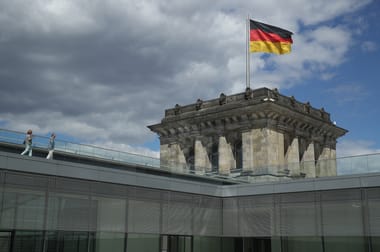
This article is part of the special report The World in 2050.
Dale Jamieson is professor of environmental studies and philosophy at New York University, and the author of “Reason in a Dark Time: Why the Struggle to Stop Climate Change Failed and What It Means for Our Future” (Oxford University Press, 2014).
NEW YORK — In the West, it is practically an article of faith that democracy is good for whatever ails us: Democracies don’t go to war with each other. They respond better to pandemics. They are uniquely able to protect human rights.
All these claims can be contested, but the supremacy of democracy is perhaps most obviously vulnerable in the fight against climate change.
Since 1992 — when nations promised to stabilize “greenhouse gas concentrations in the atmosphere at a level that would prevent dangerous interference with the climate system” — the problem has accelerated. Annual CO2 emissions have increased more than 60 percent, atmospheric concentrations more than 15 percent, and the Earth has warmed more than half a degree centigrade. This has contributed to shrinking Arctic sea ice, rising sea levels and increasing damage from wildfires and extreme weather events.
Tackling climate change requires long-term commitments, yet the time horizon of democratic leaders is keyed to the electoral cycle.
As climate change plays a role in a broad range of human tragedies, including pandemics, we know the worst is yet to come. But are we — that is, our democracies — equipped to tackle it?
As Plato identified more than 2,000 years ago, democracies are vulnerable: Their voters can be ignorant, their leaders incompetent, their law and policies unstable due to abrupt and irrational shifts in public opinion.
Climate change plays into democracy’s weaknesses. It’s a global issue that can only be managed through global cooperation, yet democracies are responsible only to their own voters, which can weaken multilateral efforts and make governments glaringly indifferent to concerns beyond their own borders.
Tackling climate change requires long-term commitments, yet the time horizon of democratic leaders is keyed to the electoral cycle. Democracies also have large numbers of “veto players” who can prevent policies from being enacted, from the Yellow Jacket protesters in France to any 34 members of the Senate in the United States.
Successfully addressing climate change means listening to the science. Yet in a democracy, expertise is subservient to the voice of the people. A democratic citizen can say to the expert: “You may be right, but who made you the boss about what we should do?” The democratic citizen can even say, “You may be an expert, but who made you the boss about what I should believe?”
As British politician Michael Gove said during the Brexit campaign, “people in this country have had enough of experts.” With the help of social media, denialism about expertise appears to be on the rise in the West and is spilling over into conspiratorial confabulation. According to recent surveys, 44 percent of U.S. Republicans believe that Bill Gates is plotting to use COVID-19 vaccination campaigns as a pretext to implant microchips in billions of people, and one-fifth of young Australians believe Gates actually played a role in creating and spreading COVID-19.
At this point, you might be tempted to interject a thought attributed to Winston Churchill: “Democracy is the worst form of government,” the British prime minister is often quoted to have said. “Except for all the others.”
Maybe. My point is that while some countries have responded more effectively to climate change than others, there are no heroes in this story. From theocratic autocracies to proud democracies, every kind of state has failed to rise to the challenge.
If democracies are to do better in the struggle against climate change, they will have to put education at the center.
For the theorist John Dewey, democracy was a “way of life” in which a community collectively works through an ever-changing landscape of threats, challenges, opportunities and emergencies. Though he thought it essential, he was sometimes dismissive of the “machinery” of democracy — its institutional arrangements, formal procedures and even the act of voting.
In Dewey’s view, the solution to integrating expertise and democracy was simple: universal education. The focus, he said, should not be on teaching facts and inculcating values, but on assisting students in learning how to learn and to engage in moral deliberation. Citizens of a democracy must be able to tell the difference between experts and charlatans.

CO2 emissions have contributed to shrinking Arctic sea ice and rising sea levels| Mario Tama/Getty Images
No government can deliver solutions when its people are unable to recognize them or unwilling to accept them. No government can be more rational or compassionate than its citizens.
Solving climate change will not turn on abandoning or embracing democracy. It will depend on political leadership, and on citizens accepting the necessity of change.
Ultimately, a global solution to climate change has to be found within the political imagination of each country. The challenge may be even greater than we think.






